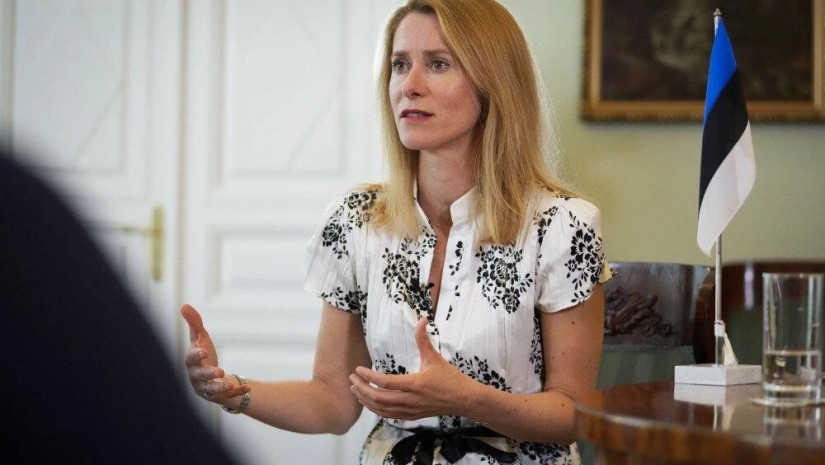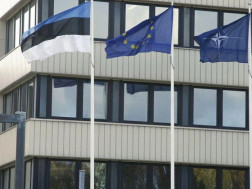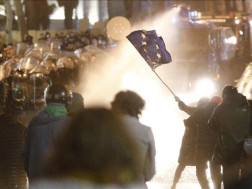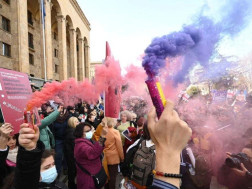“Events in Georgia remind us that democracies may also gradually erode at the hands of elected leaders”, Kallas tweeted.
On her personal Twitter page, the Prime Minister of Estonia retwitted the recent statement of Charles Michel, where the European Council President expressed strong concern about the developments in Georgia. In his words, "right to peaceful protest is at the core of any democracy. Adoption of this “foreign influence” law is not compatible with the EU path which majority in Georgia wants. Commitment to rule of law and human values is key to EU project."
As a reminder, despite the ongoing protests and opposition of a large part of society, as well as the calls of international partners, the Georgian Parliament, at its plenary session on March 7, passed a Russian-style bill “On Transparency of Foreign Influence” in the first reading by 76 votes in favor and 13 against. The bill involves registration of non-commercial legal entities and media outlets in the country as “agents of foreign influence” if they derive more than 20 percent of their income from abroad. Critics have drawn similarities to a Russian law that has severely restricted the work of civil society groups, NGOs, and media organizations there.
In response, a large-scale protest action took place outside the building of the Georgian parliament on Rustaveli Avenue in Tbilisi on March 7. The police have used tear gas and water cannons to disperse the crowds. Dozens of protesters were injured.
Ministry of Internal Affairs (MIA) of Georgia said that 66 people were detained.
Protesters threw petrol bombs and stones at police. According to MIA around 50 employees were injured, among them several required surgical intervention.
Today, demonstrators in Georgia have gathered for a second day of protests against the law on 'Transparency of Foreign Influence'.
In response, a large-scale protest action took place outside the building of the Georgian parliament on Rustaveli Avenue in Tbilisi on March 7. The police have used tear gas and water cannons to disperse the crowds. Dozens of protesters were injured.
Ministry of Internal Affairs (MIA) of Georgia said that 66 people were detained.
Protesters threw petrol bombs and stones at police. According to MIA around 50 employees were injured, among them several required surgical intervention.
Today, demonstrators in Georgia have gathered for a second day of protests against the law on 'Transparency of Foreign Influence'.
















